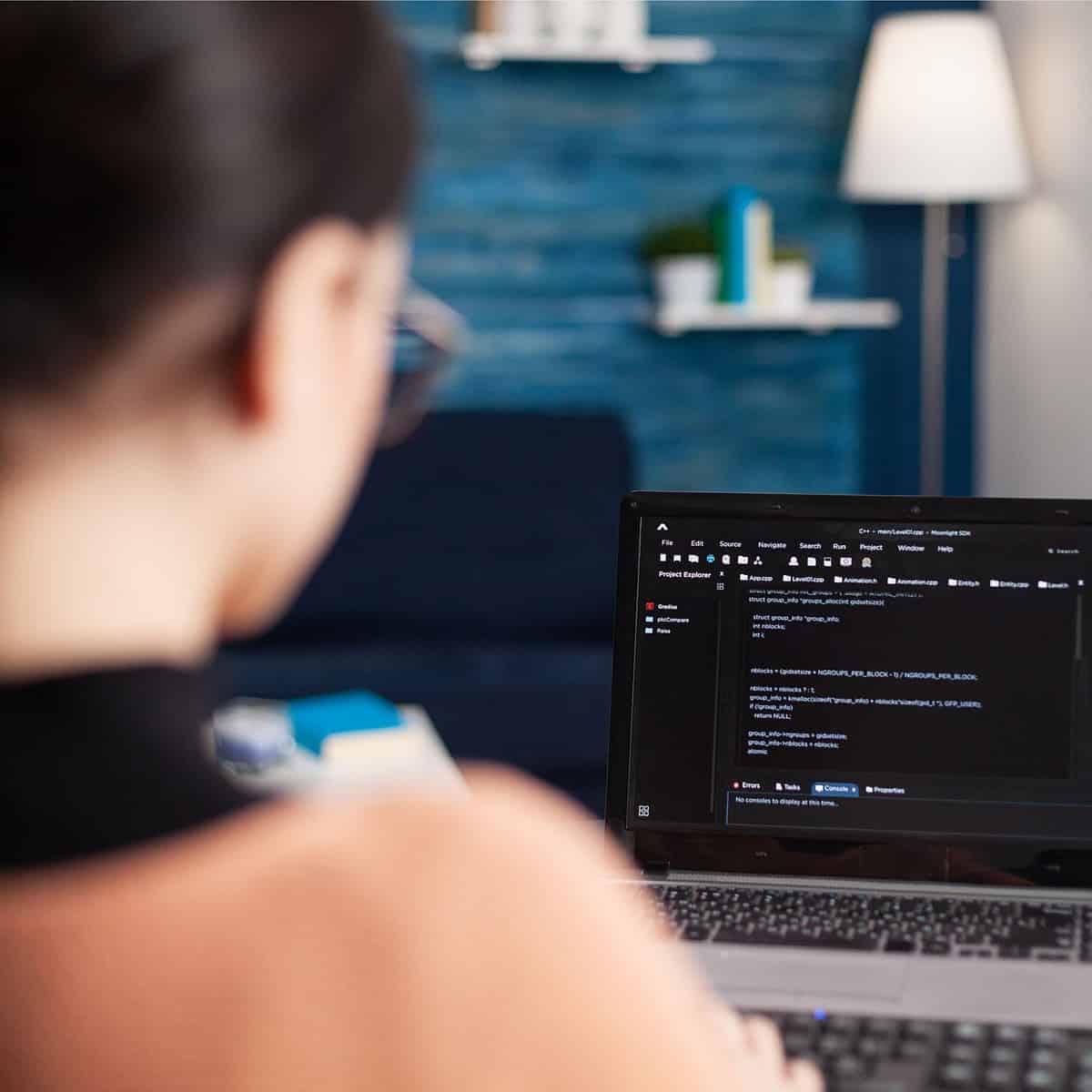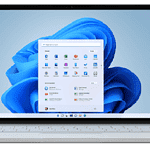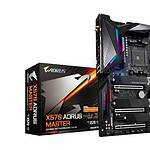Looking for an easy to understand step-by-step guide on how to learn PHP programming language? This article is for you.
PHP, or Hypertext Preprocessor, is a widely-used, open-source scripting language. It powers a significant portion of web applications. As a server-side language, PHP allows you to create dynamic content, interact with databases, and handle user input on your website.
To make it easy for you to understand each step discussed in this article and what to focus on, I have included bullet list on each step focusing on the action you should take to learn PHP programming language. Next, if you like the details as I do, I give a detail explanation of the importance of the step being considered.
However, if you focus only on the bullet list on this How to Learn PHP Programming Language guide, you will know exactly what to do to learn PHP.
Let’s get started on the steps you can take to learn PHP programing language.
Table of Content:
- Step 1: Understand the Basics of PHP
- Step 2: Set up your Development Environment
- Take Online Tutorials and Courses
- Read PHP Books and e-Books
- Practice Coding Exercises
- Learn about Databases and SQL
- Explore PHP Frameworks and Libraries
- Utilize PHP Communities and Forums
- Learn about Web Technologies Related to PHP
- Experiment with Real-World Projects
- Keep Up to Date with PHP Developments
- Seek Feedback and Mentoring
- Conclusion

Step-by-Step Guide on How to Learn PHP Programming Language
- Familiarize yourself with the language’s syntax and basic constructs.
- Learn about variables, data types, constants, and operators.
- Understand control structures like loops, conditionals, and functions.
- Install a local web server (e.g., XAMPP, WAMP, or MAMP) to run PHP on your computer.
- Install a text editor or integrated development environment (IDE) like Visual Studio Code, PhpStorm, or Sublime Text.
- Start with beginner-level tutorials and courses available on platforms like W3Schools, Codecademy, Udemy, Coursera, or PHP.net.
- PHP: The Right Way by Josh Lockhart and Phil Sturgeon.
- Modern PHP: New Features and Good Practices” by Josh Lockhart.
- PHP and MySQL for Dynamic Web Sites by Larry Ullman.
- Head First PHP & MySQL by Lynn Beighley and Michael Morrison.
- Solve coding challenges on websites like HackerRank, LeetCode, or Codewars.
- Try creating simple PHP projects, such as a calculator, a basic blog, or a simple login system.
- Understand the fundamentals of relational databases and SQL.
- Learn how to interact with databases using PHP, such as MySQL or PostgreSQL.
- Learn about popular PHP frameworks like Laravel, Symfony, or CodeIgniter.
- Familiarize yourself with PHP libraries like Composer or Guzzle.
- Join PHP-related communities on Reddit, Stack Overflow, or the PHP mailing list.
- Participate in local PHP meetups or conferences to network with other PHP developers.
- Gain a basic understanding of HTML, CSS, and JavaScript.
- Learn how to use AJAX for asynchronous data exchange between the server and client.
- Start developing your projects, such as a content management system, e-commerce website, or social networking platform.
- Contribute to open-source PHP projects to gain experience and build your portfolio.
- Follow PHP-related blogs, newsletters, and podcasts.
- Stay informed about new PHP versions, features, and best practices.
- Ask for code reviews and guidance from experienced PHP developers.
- Engage in pair programming or join a PHP study group to learn from others.
Step 1: Understand the basics of PHP
Understanding the basics of PHP when learning it is essential as it lays a strong foundation for your journey as a web developer. Grasping fundamental concepts like syntax, data types, control structures, and functions fosters logical thinking and problem-solving skills that are invaluable in programming.
A solid foundation not only allows you to learn more advanced topics efficiently but also empowers you to write clean, maintainable code, which is critical when working in teams or on large projects. Moreover, by mastering the basics, you gain the confidence to tackle complex projects, adopt frameworks, contribute to open-source initiatives, and continually expand your skills, paving the way for a successful career in web development.
Step 2: Set up your development environment
Setting up your development environment when learning PHP is a crucial step in ensuring a smooth learning experience and efficient workflow. First, install a local web server stack such as XAMPP, WAMP, or MAMP, which provides you with all the necessary components, including Apache, PHP, and MySQL, to run PHP scripts on your computer.
Next, choose a suitable text editor or integrated development environment (IDE) that supports PHP syntax highlighting, code completion, and debugging capabilities; popular options include Visual Studio Code, PhpStorm, and Sublime Text.
Additionally, install relevant extensions or plugins to enhance your IDE’s functionality, such as PHP IntelliSense, PHP Debug, or PHP CS Fixer. Once your development environment is configured, create a dedicated workspace for your PHP projects to keep your files organized and easy to navigate. This well-structured environment will streamline your learning process, enabling you to focus on mastering PHP concepts and building web applications with confidence.
Step 3: Take Online tutorials and courses
Taking online tutorials and courses when learning PHP is highly beneficial as they provide a structured, comprehensive, and accessible approach to mastering the language. These resources cater to various learning styles, offering a mix of written explanations, video lectures, and interactive coding exercises to solidify your understanding of key concepts.
Online tutorials and courses often break down complex topics into manageable chunks, making it easier for beginners to progress systematically through the material.
Furthermore, they typically cover a wide range of topics, from fundamentals to advanced concepts, ensuring a well-rounded learning experience. Many online courses also offer community support in the form of forums or chat rooms, where learners can ask questions, seek clarification, and engage with fellow students or instructors.
This interactive and supportive environment fosters a sense of community and promotes collaborative problem-solving, which is essential for growth as a programmer. In summary, online tutorials and courses provide an effective and engaging way to learn PHP, ensuring a solid foundation for your web development journey.
Step 4: Read PHP books and e-books
The following PHP books are a great read.
Reading books when learning PHP programming language is important because they offer a comprehensive and in-depth exploration of the subject matter. Books often present a systematic approach to learning, covering concepts from fundamentals to advanced topics, and providing a wealth of examples and practical use cases. As a result, they help solidify your understanding and strengthen your programming skills.
Books written by experienced authors can also share valuable insights into best practices, code optimization, and maintainability, giving you a well-rounded perspective on PHP development. Furthermore, books serve as an excellent reference material, allowing you to quickly look up concepts and revisit topics as needed. Unlike online resources, books can be accessed offline, enabling you to learn at your own pace and without distractions.
So, books play a vital role in deepening your PHP knowledge, enhancing your problem-solving abilities, and ultimately contributing to your success as a web developer.
Step 5: Practice coding exercises
Practicing coding exercises when learning PHP programming language is essential as it enables you to apply theoretical concepts in real-world scenarios, reinforcing your understanding and building your problem-solving skills.
By tackling coding challenges, you learn to think critically and creatively, finding efficient solutions to various problems. These exercises help you become familiar with PHP syntax and common programming patterns, making you more comfortable with the language.
Furthermore, coding practice exposes you to different code styles, optimization techniques, and best practices, which are crucial for writing clean, maintainable, and efficient code. As you progress through increasingly complex exercises, you build confidence in your abilities, preparing you for real-world projects and potential job interviews.
Therefore, practicing coding exercises is a vital component of learning PHP, as it strengthens your programming skills, deepens your understanding, and boosts your confidence as a web developer.
Step 6: Learn about databases and SQL
Learning about databases and SQL when studying PHP programming language is crucial because most web applications involve storing, retrieving, and manipulating data, which requires interacting with databases. By understanding databases and SQL, you gain the skills necessary to design and manage efficient data storage solutions, ensuring that your PHP applications perform well and provide a seamless user experience.
Knowledge of relational databases, such as MySQL or PostgreSQL, and SQL enables you to perform essential operations like inserting, updating, deleting, and retrieving data, as well as creating and modifying database structures. This understanding also allows you to write PHP code that securely interacts with databases, mitigating risks of data breaches or vulnerabilities like SQL injection.
Furthermore, being proficient in databases and SQL makes you a more versatile and valuable web developer, as you can handle both front-end and back-end aspects of web applications.
In summary, learning about databases and SQL is a vital aspect of PHP programming, as it equips you with the skills to build robust, secure, and high-performing web applications.
Step 7: Explore PHP frameworks and libraries
Exploring PHP frameworks and libraries when learning PHP programming language is important because they offer pre-built solutions, best practices, and standardized structures that streamline the development process and enhance code quality.
By leveraging frameworks like Laravel, Symfony, or CodeIgniter, you can expedite the development of web applications, reduce repetitive tasks, and minimize the likelihood of errors, while adhering to industry standards. These frameworks also promote the use of modern design patterns, such as Model-View-Controller (MVC), which improves the organization, maintainability, and scalability of your code.
In addition to frameworks, PHP libraries, such as Composer or Guzzle, provide reusable components and tools that simplify specific tasks, such as dependency management or HTTP requests. Familiarity with popular frameworks and libraries not only increases your efficiency as a developer but also makes you more marketable to potential employers, as many companies rely on these tools for their projects.
Therefore, exploring PHP frameworks and libraries is an essential aspect of learning PHP programming, as it equips you with the skills to build more sophisticated, maintainable, and efficient web applications.
Step 8: Utilize PHP communities and forums
Utilizing PHP communities and forums when learning PHP programming language is critical because they offer invaluable support, guidance, and opportunities for collaboration.
These platforms, such as Stack Overflow, Reddit, or PHP mailing lists, connect you with experienced developers and fellow learners who can help clarify concepts, troubleshoot issues, or provide insights into best practices. Participating in discussions or asking questions in these communities allows you to learn from diverse perspectives, enhancing your understanding and problem-solving abilities.
Furthermore, PHP communities can keep you informed about the latest developments, trends, and tools in the PHP ecosystem, ensuring that your skills stay up to date and relevant. Engaging in these forums also provides networking opportunities, enabling you to form professional connections, find mentors, or even discover job prospects.
Lastly, contributing to the community by answering questions or sharing your knowledge fosters a sense of belonging and promotes a collaborative learning environment, which is essential for growth as a programmer.
In summary, utilizing PHP communities and forums is a vital aspect of learning PHP programming, as they provide support, knowledge sharing, and networking opportunities that enrich your learning experience and career prospects.
Step 9: Learn about web technologies related to PHP
Learning about web technologies related to PHP when studying PHP programming language is crucial because web applications are inherently interconnected, relying on a combination of technologies to deliver a seamless user experience.
Gaining a basic understanding of HTML, CSS, and JavaScript, which are responsible for the structure, design, and interactivity of web pages, allows you to create more dynamic, responsive, and visually appealing applications. This knowledge enables you to work more effectively with front-end developers, as you understand the interactions and limitations of different technologies.
Additionally, familiarity with concepts like AJAX helps you create efficient, asynchronous data exchange between the server and client, improving the overall performance and responsiveness of your PHP applications.
Learning about web technologies also broadens your skillset, making you a more versatile and marketable web developer capable of handling both front-end and back-end aspects of projects.
As you can see from the above details, we can conclude that understanding web technologies related to PHP is a vital aspect of learning PHP programming, as it empowers you to build more sophisticated, user-friendly, and high-performing web applications, while enhancing your career prospects as a well-rounded developer.
Step 10: Experiment with real-world projects
Experimenting with real-world projects when learning PHP programming language is important because it enables you to apply and consolidate the concepts you’ve learned in a practical context, deepening your understanding and refining your skills.
By working on real-world projects, you encounter unique challenges and scenarios that push you to think critically, creatively, and develop effective problem-solving strategies.
These experiences also expose you to various aspects of web development, such as working with databases, handling user input, managing sessions, and integrating with other web technologies, preparing you for the diverse tasks you will face as a professional developer.
In addition, real-world projects help you understand the importance of writing maintainable, scalable, and secure code, as well as following best practices and industry standards.
As you build your portfolio with completed projects, you demonstrate your proficiency in PHP and showcase your skills to potential employers, increasing your marketability and career opportunities.
In summary, experimenting with real-world projects is a crucial aspect of learning PHP programming, as it reinforces your knowledge, enhances your problem-solving abilities, and prepares you for success in the web development industry.
Step 11: Keep up to date with PHP developments
Keeping up to date with PHP development when learning the PHP programming language is crucial because technology is constantly evolving, and staying current ensures that your skills and knowledge remain relevant in the competitive web development landscape.
Staying informed about the latest PHP versions, features, security updates, and best practices allows you to write more efficient, secure, and maintainable code, enhancing the quality of your web applications.
Moreover, being aware of new PHP libraries, frameworks, and tools enables you to leverage cutting-edge solutions to streamline your development process, improve performance, and tackle complex problems more effectively.
By actively participating in PHP communities, attending conferences, or following industry experts, you can stay informed about the latest trends, developments, and advancements in the PHP ecosystem.
Continuously updating your knowledge and skills not only makes you a more adaptable and valuable developer but also opens up new opportunities for career growth, collaboration, and innovation.
In a nutshell, keeping up to date with PHP development is a vital aspect of learning PHP programming, as it ensures that you remain competitive, proficient, and prepared to tackle modern web development challenges.
Steop 12: Seek feedback and mentorship
Seeking feedback and mentorship when learning PHP programming language is essential because it accelerates your learning process, offers valuable insights, and helps you avoid common pitfalls.
Experienced mentors can provide personalized guidance, tailored to your learning style and goals, ensuring that you stay on track and progress effectively. They can also share best practices, optimization techniques, and industry knowledge, enabling you to write clean, maintainable, and efficient code.
Feedback from mentors or peers allows you to identify areas of improvement, refine your problem-solving skills, and enhance your understanding of PHP concepts.
Furthermore, mentorship fosters a growth mindset and encourages continuous learning, pushing you to explore new challenges and expand your skillset.
Engaging with mentors or participating in code review sessions can also help you develop essential soft skills, such as communication, collaboration, and adaptability, which are valuable in the professional world.
In summary, seeking feedback and mentorship is a crucial aspect of learning PHP programming, as it promotes personal growth, sharpens your technical skills, and prepares you for a successful career as a web developer.

In Conclusion
You now have an in-depth guide on how to learn PHP programming language. Follow these steps to develop your PHP skills and start building awesome web applications.
Learning PHP provides a strong foundation for web development. This is because PHP is often used in conjunction with HTML, CSS, and JavaScript to build robust, feature-rich applications.
By leveraging available resources such as online tutorials, courses, books, and coding exercises, and by exploring PHP frameworks and libraries, you’ll be well-equipped to create powerful web applications and advance your career as a web developer.
I hope that this “How to Learn PHP Programming Language” guide will prove helpful to you. If that’s the case, let me know on the comment section below. Also, if you have any contribution to this article, or tips on how to learn PHP programming language, kindly add them in the comment section below.
Remember that learning a programming language takes time and persistence. So, continuously practice and build upon your skills to become proficient in PHP.
Contact us if you need help with a PHP projects.












